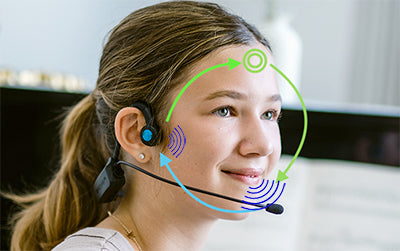
Embarking on the path to adulthood, autistic teens face unique challenges as they learn essential life skills. I'm Temple Grandin, and from personal experience, I know the resilience and determination these young individuals possess. Our role is to guide them in mastering the skills necessary for a rich and independent life, embracing their individuality every step of the way.
Understanding Individual Needs
Each autistic teen has a distinct set of abilities and areas for growth. Identifying the most pertinent daily living skills for their personal situation is vital. Whether it's mastering self-care routines or navigating the intricacies of meal planning, a customized approach lays the foundation for successful skill acquisition.
As guardians, we must arm ourselves with patience and steadfastness. Applauding every progress, no matter how minute, and persevering through challenges, carves the path to independence.
Professional insight is indispensable. Working with knowledgeable therapists and educators can offer strategies and resources that resonate with your teen's learning preferences.
Practical Skill Development
Home is the training ground for practical skills. Begin with elemental tasks and gradually introduce tools like visual aids or applications that simplify complex activities into manageable segments.
As foundational skills are established, introduce your teen to more intricate tasks such as financial management and navigation of public transit. Role-play and hands-on practice are invaluable teaching tools, fostering skill retention through repetition.
For those with communication barriers, tools like PECS or assistive technologies can be transformative, offering them a voice and enhancing their autonomy.
Social Skills and Community Participation
Interpersonal skills are a cornerstone of independence. Structured training in social interaction, from reading non-verbal cues to engaging in dialogue, is essential. Moreover, encouraging participation in community activities, whether through volunteer work or specialized clubs, nurtures social competence in a supportive milieu.
Our aim is to cultivate an inclusive society that honors neurodiversity. As advocates, we can foster environments where everyone finds their place.
Empowering Through Technology
Technology can be a potent ally in the quest for independence, offering devices and software that hone cognitive skills and facilitate learning. For instance, Forbrain harnesses the power of the voice to enhance sensory processing.

Discover how Forbrain can support cognitive development, a tool grounded in the principles of the Tomatis® Method.
Selecting technology that aligns with your teen's interests and is backed by scientific research is crucial. Consult with a specialist to find the perfect match for your teen.
Building a Supportive Community
A supportive community is the backbone of fostering independence in autistic teens. A collaborative approach among family, educators, and therapists ensures a unified effort towards their empowerment.
Explore resources such as Bright Autism News or check out the tools at Bright Autism Products for additional support and a sense of community.
Instilling independence is a marathon, not a sprint, necessitating unwavering support and a belief in the boundless potential of every teen. By equipping them with the appropriate tools and skills, we're not just preparing them for the future; we're unlocking a realm of opportunities.
Together, let's celebrate each achievement and support our autistic teens in their journey to becoming the self-reliant and empowered individuals they are destined to be.









Leave a comment